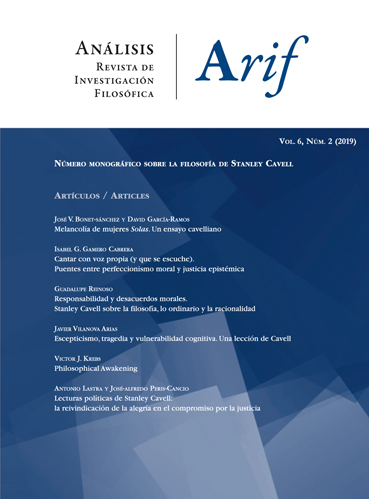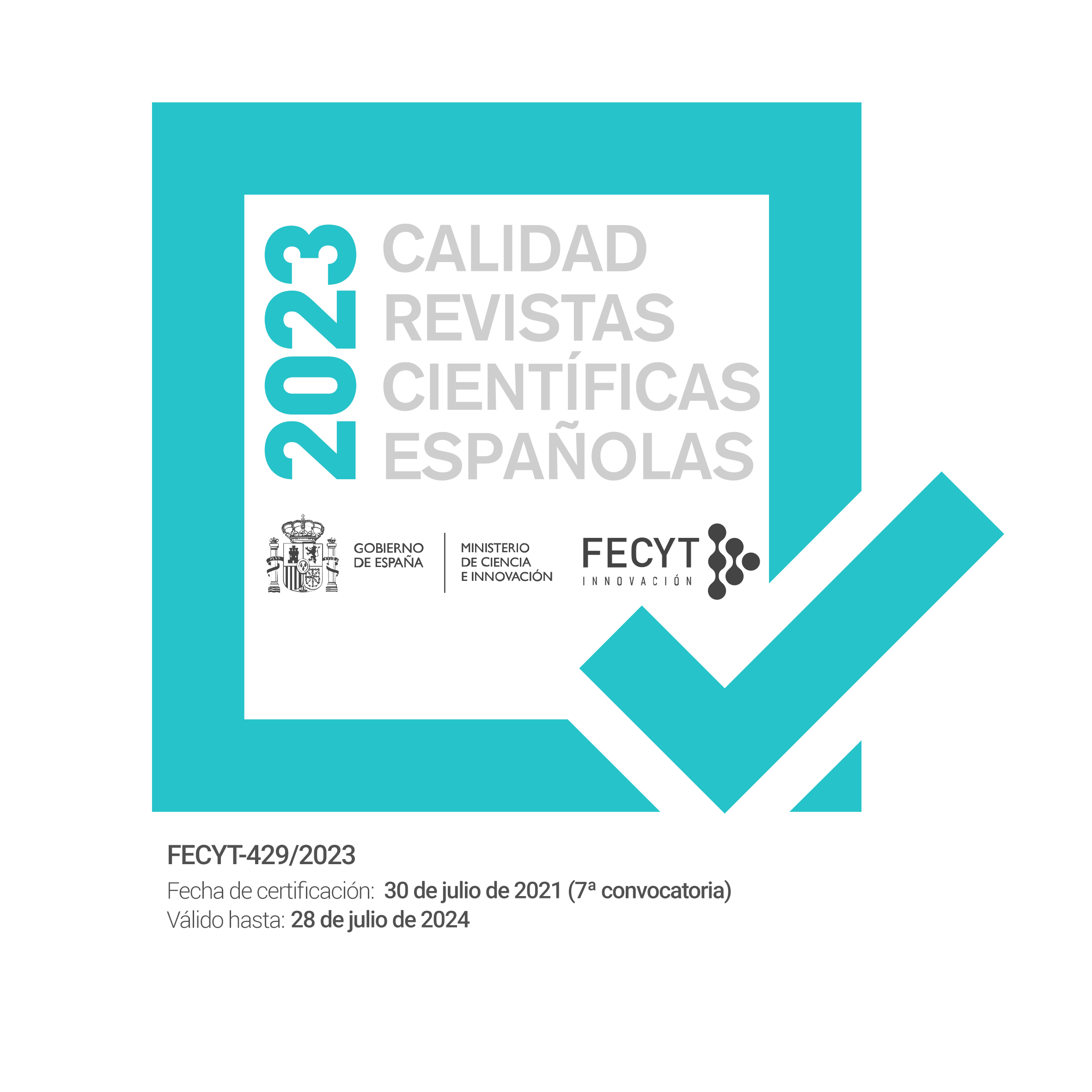To sing with one’s own voice (and to be heard)
Bridges among moral perfectionism and epistemic justice
DOI:
https://doi.org/10.26754/ojs_arif/a.rif.201924067Abstract
In this paper, I compare Stanley Cavell’s understanding about the scepticism and the drama of the unknown woman with José Medina’s diagnose on epistemic injustice, in order to understand, firstly, how are conducted the processes of silencing and lack of acknowledgement, which harm underrepresented people and collectives. Secondly, I contrast the solutions that Cavell and Medina pose to these problems, with an especial interest in the link they establish among epistemic, ethic and politic elements, and in their regard of arts and emotions, as factors that overflow the Modern and Cartesian understanding of philosophy and play a fundamental role in the overcoming of the aforementioned difficulties. Some artistic examples will be also brought up to illustrate Medina and Cavell’s explanations.
Downloads
Downloads
Published
How to Cite
Issue
Section
License
Los autores que publican en esta revista están de acuerdo con los siguientes términos: los autores conservan los derechos de autor y garantizan a la revista el derecho de ser la primera publicación del trabajo al igual que licenciado bajo una Creative Commons Reconocimiento-No Comercial-Sin Obra Derivada 4.0 (CC BY-NC-ND) que permite a otros compartir el trabajo con un reconocimiento de la autoría del trabajo y la publicación inicial en esta revista. Los autores pueden establecer por separado acuerdos adicionales para la distribución no exclusiva de la versión de la obra publicada en la revista (por ejemplo, situarlo en un repositorio institucional o publicarlo en un libro), con un reconocimiento de su publicación inicial en esta revista.






